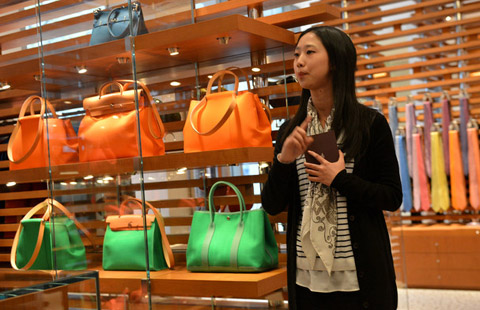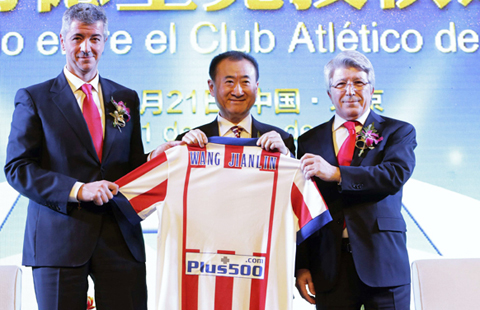Dalian, a welcoming haven for expats
By JOSEPH CATANZARO/YANG ZIMAN/ZHANG XIAOMIN (China Daily) Updated: 2015-01-26 09:27Currently, the local tax revenue from foreign companies accounts for 30 percent of the city's annual total, and some big projects in the works from companies like Goodyear and Volkswagen are expected to see that figure rise.
Foreign investment aside, the need for Dalian to connect with and understand international markets is pivotal to its economic fortunes.
From Dalian, northeastern China's primary port city, container ships head out to 79 international destinations.
There are 16,000 local companies involved in foreign trade, inbound or outbound, and the sector employs about 700,000 local people.
"Foreign trade is 56 percent of our GDP and it employs about 10 percent of the population," says Liu.
"The city's economic and social development is going very well, and it is arguable the introduction of talent and the role of foreign experts has been very important and pushed this local development," says Zhang, who stresses the importance of knowledge transfer to the city's burgeoning high-end manufacturing and service sectors.
"In the past four years, we've placed 1,928 foreigners (with Chinese companies) to work on 207 different projects."
The figures paint a compelling picture that shows why foreigners and foreign companies are welcome in Dalian, but beyond the bonhomie from local officials, why are expatriates choosing to stay and invest personally and financially?
Frenchman Fabien Azzi, 38, is the general manager of French headlight manufacturer Holophane, which employs 230 people in Dalian. His main reason for moving to China 13 years ago was to leverage the wealth of opportunity in the booming nation and advance his career quicker than he could have in a Western country, a goal that saw him live and work in several cities and provinces before settling in Dalian, where he discovered a work-life balance that appealed to him.
"Dalian is very nice," he says. "Compared to Sichuan, it is more developed. Compared with Guangdong, it is less polluted, greener, has blue skies and blue seas. Compared with Shanghai, it's more cultural. The weather in summer is perfect and there's central heating in winter. From my home I can walk to the forest and listen to the birds. You can't do that in other cities in China. This is my home."
Fashion designer Alia Juma, 34, is another foreigner who has fallen in love with Dalian. The Canadian, who along with her brother Jamil runs the Juma fashion label boutique, says they came to China about six years ago to oversee manufacturing of their clothing in Guangdong province. But despite the fact labor costs are cheaper in the south, she decided to set up her base in Dalian after visiting the city.
For her, it represents the perfect compromise between business and lifestyle.
"Dalian is known as the fashion city, the romantic city, of China," she says. "It's relaxed, it's comfortable, it's a good space to come back to because it's not as crowded as a lot of the other cities."
- Chinese innovation draws international attention at the WEF
- Chinese participants see WEF as efficient network platform, predictor for future
- China CNR announces major contracts
- Tianjin's 1st Tesla Supercharger station put to use
- Security apps gaining ground in China
- Six trends in China’s luxury market in 2014
- Online education boom brings wealth to English teachers
- China's PE market set to grow much further
















